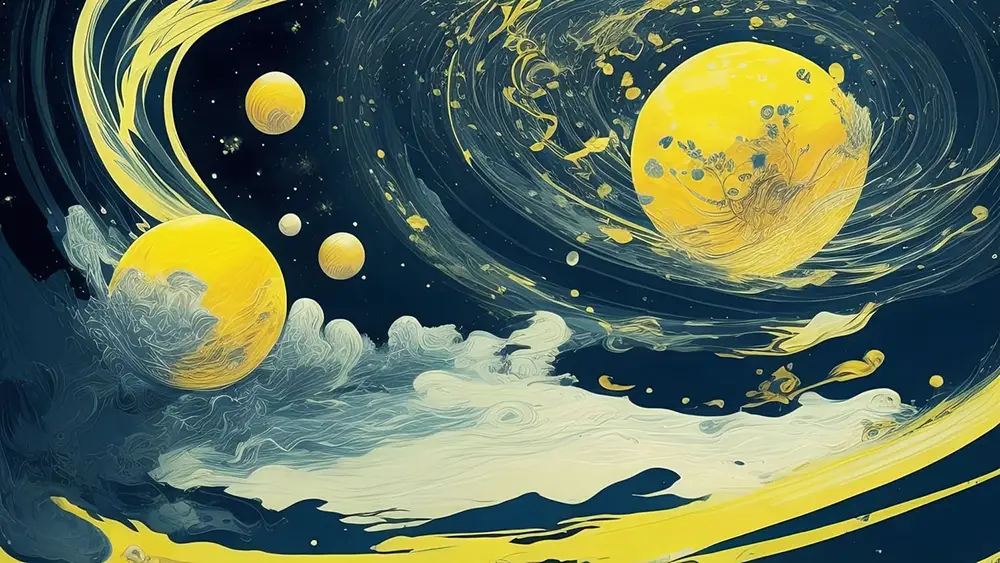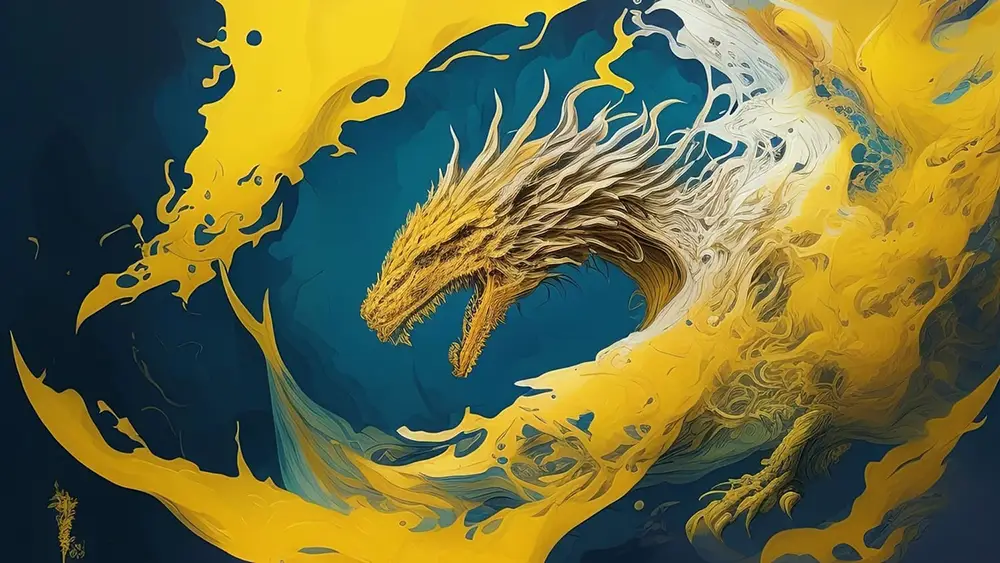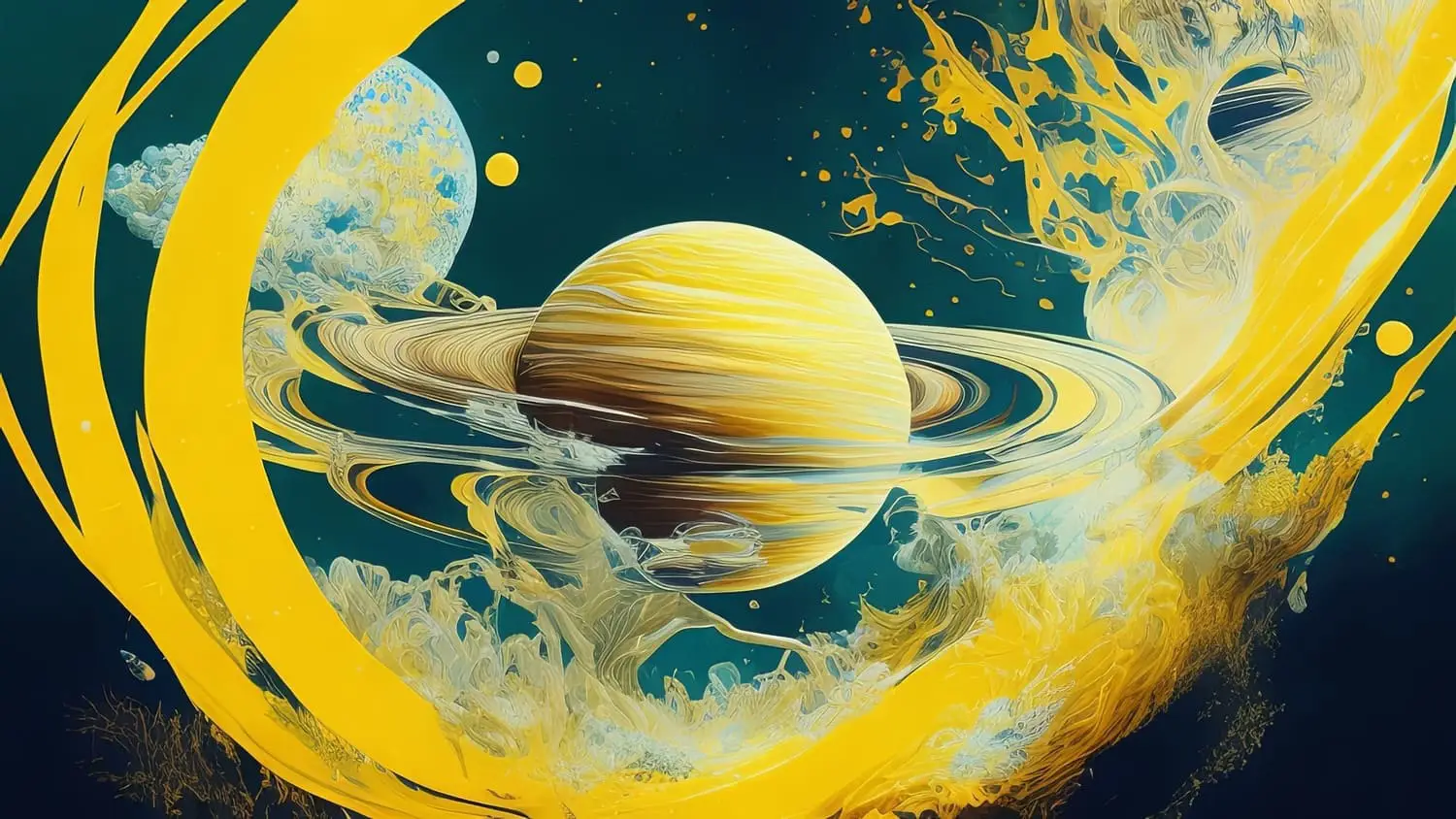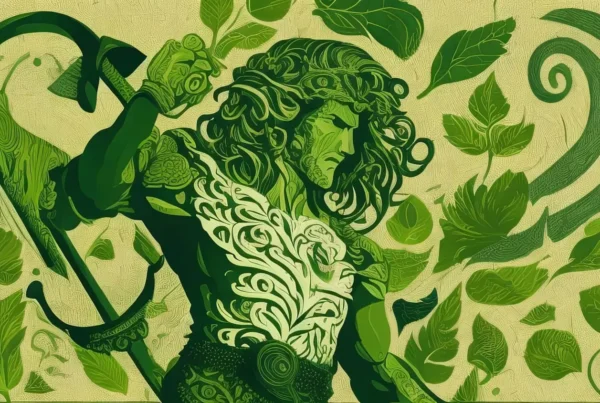BOOK YOUR WORKSHOP TODAY
All posts published here are presented as casual conversation pieces to provoke thought in some direction or another, they do not necessarily represent fixed opinions of the Inner Council, as our work exists beyond the spectrum of bound statement and singular clause.
On the Hermetic Pymander
The Vision of Hermes is a creation story that is found in the Hermetica, which is a compilation of Gnostic texts that were found from the early centuries of the Christian era. In this “Poimandres” we find a very revealing story that has contributed to ideas of psychological energy states, especially from ideas of Jungian complexes and disorder. This story portrays man’s journey into the unknown and the challenges required to unravel the secrets of the Universe through the knowledge of God. In response to this challenge, Poimandres responds, “I am with you everywhere; keep in mind all that you desire to learn, and I will teach you.”
The following is not the text of the Poimandres but a transcript of Manly P. Hall’s lecture on The Pymander or The Vision of Hermes. It is an eloquent breakdown of the core concept at the centre of Hermetic thought and teaching. Enjoy!
The Greatest of the books of Hermes is that which is called in the day the Divine Pymander. It consists of 17 fragments; these fragments together cannot be said to form the Corpus Hermeticum, but they certainly constitute the greatest core of temporal authority in the Hermetic system. Of these works, the Poimandres or The Vision is by far the most important. It’s usually placed second in the collection. The analysis of this work must begin with some effort to determine its place in the literary religious structure of our world knowledge. Actually by structure, the vision is a sacred book. It contains within itself nearly all of the traditional elements of a divine revelation. We have no real right to say that it is a plagiarisation from other systems, although as in the case of almost all sacred books it shows some indebtedness to earlier or contemporary thought. This must also be said of the bible, or of the teachings of Buddha, or of the writings of Confucius. Thus we may say that the vision not only gives us a firm insight into the Hermetic theory, but also explains clearly why this gradually came to be of unusual interest to chemists and how it made possible perhaps, the rise of symbolic alchemy. We know immediately when we approach the book that we are in the presence of something resembling an apocalypse. There is a reminiscent likeness of the vision of Ezekiel, or to other ancient literary and religious fragments. On the other hand there is also a strange note of uniqueness running through the book. This uniqueness is not in the words, nor necessarily in the word pictures that are produced, it is in the arrangement of other available elements that these elements existed prior to the production of the hermetic writings we cannot doubt.
Therefore it is in the sequence in which they are placed, it is the order and descent of ideas which bring with them a certain newness. As though we have taken old and familiar pigments and paints, used a traditional canvas and well understood brushes and pallet yet painted a picture that was new, a picture that combined much of the wisdom of the past and provided a kind of key to open doctrines which had already attracted and held public attention. Thus we may say that the vision represents a kind of key through the great theological mysteries of antiquity, it reduces them to a reasonable and recognisable order, it is a powerful defence of comparative religion. Like the apocalypse of John shows that the author or authors had a wide acquaintance with religions apart from the area in which this work is believed to have been produced. In broad structure therefore we have this work that has come down to us as the divine vision of Hermes Mercurius Trismegistus who is described as a priest of the mysteries of Egypt, and whose writings according to his own content, they are not the stamp of a man but the stamp of heaven. In this work Hermes is advanced as a prophet, as a minister and missionary of God. As one particularly and divinely tailored to reveal the essential doctrine to mankind. The work is brief, comparatively. We can sometimes wonder why it did not gain a greater sphere of influence. In many respects it has a grammar missing in other sacred books. It certainly has a wonderful symbolism, which could inspire the minds of many persons of a contemplation of mysteries.
Yet through it all there runs a thread of intellectualism so broad in its scope, so deep in its implication that in all probabilities it decreed or destined that the work should have a minority audience, that it could only be understandable by certain types of persons. While it was a wonderful picture story, it was only for certain kinds of minds, these minds were not sufficient in number to integrate around this work the kind of religion or the kind of a common descent of beliefs that we find with simpler more obvious revelations. The work also brings into focus a number of contexts with which we are becoming increasingly familiar today, one of these is an extension, an application of the Platonic concept of archetypes. The term archetype actually occurs in the vision, therefore there is a link between it and the psychological concept of archetypes which we have today.
Platonic concept of archetypes
Also like Buddhism and Taoism, the vision strongly emphasises the psychological quality in human nature. It deals with mind, it deals with reason, and it deals with the pitfalls into which the mind may lead. And the method of rescuing the individual from the disturbing influences of his own thoughts. Thus the work may be regarded in the modern term as psychological, and it represents religion as a psychological mystery. It presents theology, not in its traditional or conventional form, but more as a philosophy. And we must assume from the collected product of an Hermetic group that the work was that of a philosophic religious body, in which perhaps philosophy took predominance, but in turn became the instrument for the clarification of spiritual principles. There is much subtle wording in the vision also. Wording which has to be rather carefully examined. It is quite probable that for 15 or 18 hundred years the decline of Greco-Egyptian culture to the rise of modern humanism that these subtle inferences would have a slight impact on the public mind. There was a veritability to equate them, to find in them familiar responses to the long dark ages which we call the mediaeval world. Now however we have restored much of the learning which would enable us to give us this great dialogue—which it essentially is—its place in our modern world of thought. We come across two or three important points which call for a certain divergence from our principled beam or stream, so we will have to be prepared to reach out into comparative religion just a little in order to clarify the issue. The story takes as in the vision of Ezekiel or in the apocalypse of John a general pattern of the recounting of a mystical experience which occurred to the principal person, in this case Hermes. There is nothing whatsoever within the visions—as it is called—which will give us any clue to the historical orientation of Hermes, or his character and personality. There is no description of him. He simply appears as a person passing through an extraordinary internal revelation. And having received the instruction achieving to a dedication by means of which he meant for to share it with all who would listen.
Thus the Hermes of the vision is a person without crystallised personality, he is an archetypal kind of person, perhaps he represents all truth seekers, or the truth seeker. Certainly he experiences that which all truth seekers hope to experience, a kind of a reward by which they come in the end to the substance of their soul’s desire. So we find according to the vision itself, this man wandering forth alone into the wilderness. He comes to a distant place, a place apparently barren and forlorn. But one apart from the ordinary habitations of men. Here he sits himself, and begins the quiet internal meditation from the mystery of truth. Now in this meditation we are told in the vision for example that Hermes divides himself, or separates himself from his body and his senses. This almost immediately gives us a certain hint of yoga of Vedanta. The presence of a discipline by means of which the conscious energies are directed away from objective things is clearly indicated. Hermes was following a formula or a pattern, he was performing a certain kind of devotion, and the implication further is that this devotion is that which was taught in the mysteries or in the secret schools of initiation. In any event he retired into the inner parts of himself, he relaxed his objective senses, he depended not upon them, but upon the extension of an intuitive nature within him. And as he internalised, separating himself totally from all the concerns of this world, departing, not only into the wilderness of a desert place, but into the inner wilderness of his own life, apart from all things. He suddenly beheld the universe open around him, it seemed to break, burst, unfold with incredible rapidity and he beheld filling the universe, filling space, a strange monster. This monster was a great winged dragon which writhed and turned and twisted in the air. And when we come to this, we come to our first exploration of comparative religion, for the description of this dragon is almost identical with the description given by Confucius of the mind of Lao Tzu. It was this strange incredible power monster. Something like the Chinese dragon, particularly the imperial five clawed symbol of heaven. To the Chinese the dragon was the symbol of universal energy, it was the symbol of light per se, it was the symbol of all power and of god as power. In the vision this dragon becomes the personification of universal mind, the intellect of the world. It is a creature of vast strength and mysterious appearance, both inviting and menacing—and as the vision tells us—utterly unfamiliar to the normal senses or to the expectancy of man’s outward perceptions.

The dragon of the mysteries
Hermes beholding the dragon is terrified, but there is nothing whatever in the vision to indicate that this dragon was a monster of evil it was not, it was the dragon of the mysteries, it was the winged serpent of the ancient Egyptian high animals, it was the combined symbol of light, light consciousness motion and mind. It was all these qualities and powers as one internal rising thing. In the Chinese philosophy the dragon is a most sacred and important symbol in as much as it represents an animal that feeds from the sky. It derives no nutrition from the earth, it does not place its feet upon the earth, its abode is space, it sleeps upon clouds, it never approaches man and those who discover it must journey to the most difficult and inaccessible areas. Yet this dragon in China is also the guardian of the pearl of great price, it is the guardian of the mysterious golden ball of light. It is even to some degree the devourer of the sun and among the Chinese of course it was also the particular emblem of absolute sovereignty and royalty. Hermes beholding this dragon gives us symbolically—almost in the form of pictures—a story which we must also give some consideration to. It tells us that the nature of true mind is unknown to man. That what we call the mind is not the mind. That this thing that is real the mind is as incredible as the dragon, that it is utterly beyond our experience, and he tells us in one of the fragments that the mind that we know is not the mind. That what we call the source of thought is simply an aggregate of physical faculties and powers within us. That what we call the thinker is not the thinker, what we call reason is not the reason with a capital R.
What we call the God concept is not the true God concept, that what we are trying to define and defile in the very process is utterly beyond us, an incredible thing that in its first impact terrifies and brings us to our knees beseeching it to conceal something of its radiance from us because it is beyond our knowledge and beyond our power to endure. Thus we have in the vision the immediate clarification of this thing which Hermes is later to refer to as reason. But this is not the reason of the book man, this is not the reason of scholarship, this is not the reason which arises only from the experience and contemplation of worldly things, this is not worldly wisdom, this is not the wisdom that is derived from the research that we know. This is the wisdom that lives and forever exists free in space, a reason that never feeds upon earthly things but has a life in itself, a reason that is wisdom with wings, an immortal creature, a creature forever in motion, forever frightening or fearful in its aspects, but at the same time this fearfulness of appearance only, for this reason destroys nothing, attacks nothing, injures nothing. The only way in which it hurts man is because it frightens him, it does nothing actually to injure him. Hermes however fearful of the tremendous impact of this mind in the form of the great dragon beseeches reason to present itself to him in some more familiar or more simple form. And the heavenly thing sort of falls back into itself again and in the place of it is a great area of radiance, there is only light, and this light is therefore the appearance of reason, this light is a radiance abiding in space, this light carries within itself the power of the dragon, yet it is not of the same terrible and menacing appearance.

The enlightenment
This radiance then to Hermes obviously permeates all space, and reason takes upon itself the power of enlightenment. It is revealed as the enlightener or the bringer of the light of the mind and Hermes feels himself lifted up and he is placed in the midst of this radiance and he stands there supported only by space and the light, having his foundation in everlastingness because he is in the substance of light itself. From within this substance there can be no falling and there can be no injury and there can be no lack of anything. Yet because Hermes has asked for wisdom and asked to know the mystery of the great reason, which is the master of the great mystery of the world, he beholds something else, remain possible to him out of the power of the divine mind, and this thing that happens to him is that gradually he perceives something he does not know what it is exactly, it seems like dark curtains or mysterious streamers of mist, or a strange obscuration that flows down from above as though it were a water putting out fire and this strange mist like darkness descending in every direction slowly causes the radiance to fade out.
The radiance is dissolved into this mist, and the mist becomes more and more dense and impenetrable until at last Hermes finds himself standing only in the mist. Yet where he stands has been the radiance but a water has put out the fire of light, yet it was not earthly water, it is not anything that we know, it was a kind of conditioned darkness, not simple darkness but a darkness that poured like water or moved like some strange mysterious fluid and as this darkness finally caused the radiance to vanish into itself so that it was no longer apparent or visible Hermes became aware of sighing and the moaning and of strange sounds coming out of the mist. In the midst of all of this strange moaning and sound he became aware that another transformation was taking place. He knew inwardly that what had happened was, that matter, a mysterious tangible substance had gradually fallen from the sky and had devoured the radiance and that this radiance was now locked in this strange fluidic mist and that this mist was what some of our mystics of the early twentieth century referred to as the mist of matter, it was this material something that had swallowed up the light and because of this there was a strange moaning and crying and sighing. As this condition continued for a time another strange and wonderful thing happened, there rolled out of this mist and this darkness now ascending from below a great column a pillar, and this pillar became a great radiant thing standing in the way of the mist and Hermes heard the voice of reason, the great invisible dragon that was no longer to be seen. And the invisible dragon declared that this mysterious thing that had risen out of the darkness was the word of the mind, the power, that this mysterious mind word power represented a kind of instrument that was brought forth and created out of mind itself, out of being, out of reason. That was to stand until everlastingness as the symbol like the column of Enoch, of the enduring fact, it was the pillar perhaps set up in Egypt referred to in the Old Testament, anyway it was the steadfastness of the law, standing forever like a rock, like a great column, a great lighthouse or tower forever standing in the darkness. Now this thing that stood in the darkness was a symbol also, but it was a symbol that in the Hermetic mystery and particularly with the later Hemerists takes on a great many attributes. This tower takes on some of the qualities of the mysterious rainbow of Noah, because this tower is the tower of the covenant, while this tower stands there also stands the power, which stood, stands and shall stand. This column represents the presence of reality in the midst of all things. In fact, the great mind instructs Hermes that this tower is the certainty in the midst of the darkness. It is the ever present and indestructible monument, the lighthouse.
The tower archetype
The testimony until the ages, and perhaps Hermes is not so far from the fact—and he tells indirectly—that to him this tower means law, this tower is the law, and this law is what stands in the darkness. That remains whether man knows it or not, sees it or not, understands it or not, and modern science looking out into the universe beholds a tower of law which it cannot break and that which in its own nature is forever invisible, reveals itself by the immutability of the seasons, by the motions of planets, by the great courses of cosmic systems. by the principles of growth in all things, by the harmonies of elements, by the structure of cells, and by the mysterious formulas which by their reversal can even split the atom. Every one of these things stands as a strange lighthouse in the darkness bearing witness to the fact that this world in which we live is forever supported and sustained by the single column of the divine will, that this will is the proof that God cannot, has not and never will depart from his world, that this principle stands forever. So in the midst of all uncertainty man searching for truth may detect the presence of these eternal landmarks. These principles and invariable patterns, which impel Lord Bacon to say on one occasion, that it is not necessary for God to prove himself by miracles, for his commonest works are in themselves miraculous. This thought perhaps is the principle behind this concept. Certainly it is the column standing as the inevitable, visible, knowable, tangible proof to the eternal power that never ceases, never changes, and can never be destroyed. From this tower then also comes other thinking, other value, for this tower more or less bears witness to the power of deity, the strange intangible dragon which is in a sense reason as universal will, gave place to radiance, which is reason as universal love.
This in turn, destroyed by matter this strange veil of the senses which descends over man’s spiritual emotion, gradually dimming these emotions and perverting them. This in turn gives witness to the final manifestation of the invisible through the immutable structure of a universe upon eternal foundations rising as a column out of the darkness. Now the great reason in the power of things then further explains that Hermes has beheld the descent of the eternal into the darkness of illusion. That the darkness in the midst of which rises the column is in truth the darkness of the mortal mind which stands in the presence of the column but does not see it. Does not know it, does not know how to comprehend it or to realise it, for it is only given to those whom God shall love, that they shall look out into chaos and see not chaos but the rising of the great column of law. The others are not given to see these things. The reason also explains how all this mystery came about. It explains for example that the divine mind within itself conjured up archetypes, these archetypes are its own thoughts. The divine power of mind reason, reflecting upon his own nature cause to arise within itself thought forms. These thought forms being what the modern psychologist might call the wishful thinking of the infinite. The infinite possessing within itself absolute potential and with also the power of absolute transformation of potential into potency.
The eternal mind
The universal mind began to devise out of itself the devisement of itself. It began to project its own eternal reason into the product of reason, fashioning out of itself many patterns as though upon a potter’s wheel, and each of these patterns was a magnificently potent blossom of thought, each of these patterns was a tremendous dynamic symmetry of divine idea. The eternal mind, having daydreamed these beautiful things within itself, having in it meditation, realised that of which it was capable. And having in itself the infinite good which it could not but wish to express through the perpetual visualisation of good things. It is said in the vision that the reason fell in love with its own thought and because it formed a partnership with its own thought it descended out of its own nature and became one with its thought and this descent or this departure from its own centre into the centre of its own production was the first motion and from this came the supreme illusion which is existence as we know it.
Thus Hermes goes on to say that illusion always arises from reason falling in love with its own thoughts. The delusion from man is the dedication of the energy of his mind to the service to the productions of that same mind. Therefore if a man shall have a fear and shall create a thought in which this thought is objectified as a pattern, as impulse, as a design causing negative attitudes to arise within him then his reason becomes identical with his own thought, he falls in love with his own idea or archetype, unites with it and begins to serve this idea rather than the truth. Wherever this occurs native habits set in and man loses his own centre becoming the servant of thought and forgets that every thought is a production of himself. Therefore the service of his thought is merely the service of a lesser part of his own nature. Forgetting this he dedicates his life to the fulfilment of his own thoughts and in so doing wonders further and further into space like Dionysus following the magic mirror held by the titans. And when he has been lured away from the great throne of heaven the titans set upon Dionysus the reasoner and destroy him. And then they eat of his flesh they in turn are destroyed by the thunderbolts of Zeus and from the ashes of the titans—containing the blood of Dionysis—was fashioned the bodies of mortal man. This is your Greek men and carries the same essential point. In the beginning, reason is lured into space by its own archetypal thoughts, thus establishing the pattern which maintains upon all the levels of life and every man is lured toward chaos by his own thoughts, which he becomes enamoured of, thinking them greater than thoughts of any other man, and most of all regarding them as greater than the thoughts of heaven. In so doing he sets up darkness, he sets up illusion, he sets up a mysterious falseness by which his entire future is strangely possessed and obsessed.
Please download the PDF, ready to print to keep on reading…
If you would like to understand more about archetypal therapy and the ongoing integration support that we offer at the Inner Council then feel free to contact us for a casual and confidential conversation. We are, by the way, expecting you.





